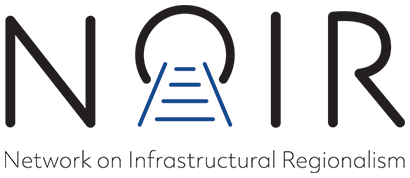It's getting darker! RSA renews NOIR for a second term
- Jen Nelles
- Apr 22, 2024
- 2 min read

We are delighted to announce that the Regional Studies Association has recently approved another round of funding for the NOIR network through 2027.
This announcement comes after the successful conclusion of Phase 1 of the network. Our first round of exploits is documented in the Final Report on the Network on Infrastructural Regionalisms (featured in this month's Regions eZine). The report documents five major meetings (one keynote and four workshop events) as well as publications resulting from network activities. These include our network launching position paper in Regional Studies, Regional Science; a virtual special issue retrospective on forty years of publications in Regional Studies touching on themes of infrastructural regionalism; and a chapter on regionalizing infrastructural lives in Infrastructuring Regional Futures. We also published two edited collections including an edited volume, Infrastructural Times: Temporality and the Making of Global Urban Worlds recently published by the University of Bristol Press, and a forthcoming special issue of Territory, Politics, Governance featuring papers from our Water Infrastructure and Regional Governance workshop series.
Phase 2 of the network emphasizes mobilizing infrastructural regionalism to assist scholars and practitioners in developing policy outcomes that facilitate equitable regional development. We will continue the work started in the first phase with a renewed focus on expanding the network, increasing engagement with the practitioner/policy community and developing collaborative research around the theme of infrastructures of regional connectivity. The network will offer multiple forums to debate the terrains of regional infrastructure, develop collaborative research projects, and facilitate meaningful dialogue between academics and practitioners.
“We are very excited for the RSA Research Network on Infrastructural Regionalism (NOIR) to be extended through 2027. Support from the RSA will enable us to continue tackling critical questions at the intersection of infrastructural and regional studies. NOIR’s first phase developed a novel agenda that placed the region at the center of the ‘infrastructural turn’ in the social and policy sciences. The network’s conferences sessions, panels, and workshops were attended by over 250 people and helped elevate the scholarship of students, early-career, and established researchers with diverse disciplinary and geographic backgrounds. We are incredibly grateful to the RSA for continuing to facilitate this work. NOIR’s second phase will further advance our conceptual and applied understanding of ‘infrastructural regionalisms’ and foster substantive engagement with policymakers and practitioners working on pressing infrastructural issues. NOIR maintains an open approach to membership – we’re looking forward to renewing our existing collaborations and welcoming new members to the network!”
If you are interested in joining our network please get in touch at





Comments